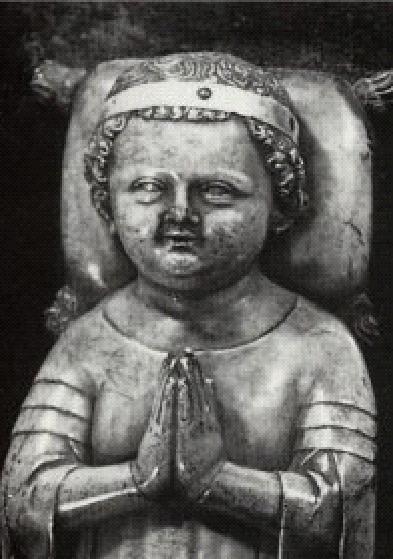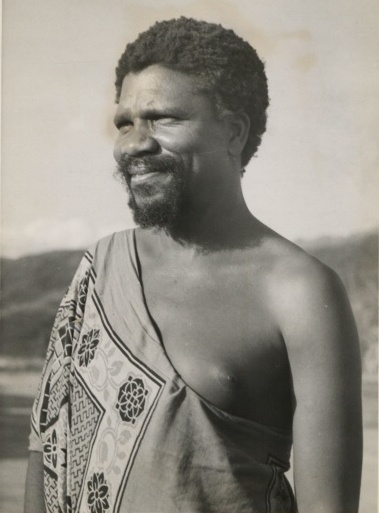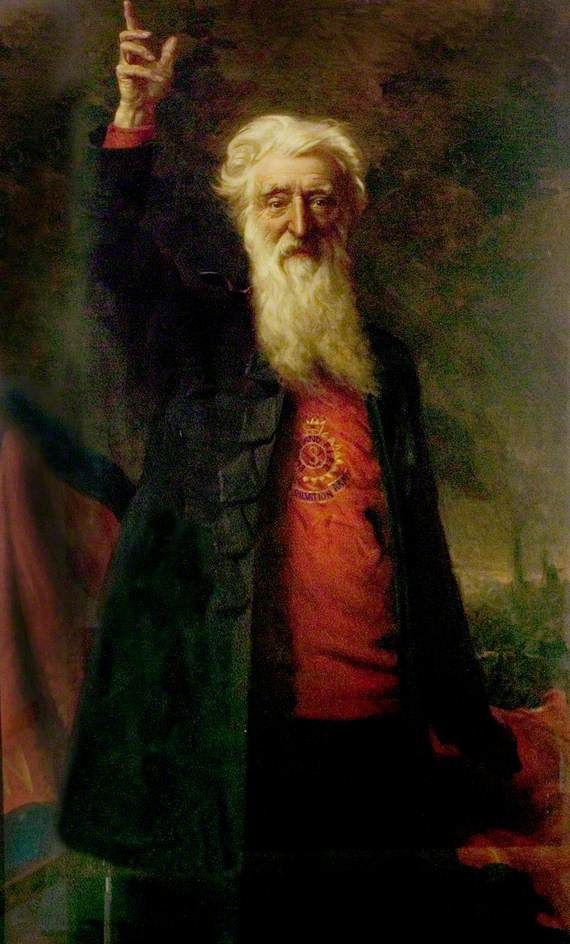Introduction
You will have received notice from Roger Mitchell about our Annual General Meeting, which is to be held, virtually, on Friday 30th July. The documents will provide you with the information, which would normally be reported at an AGM, together with an indication as to how you can participate and make your make your views known. Please do take note of this, as the meeting occurs at a critical time and if we are to come successfully out of the present difficulties, we need the support of all members.
Roger reports that he has already had a significant number of responses, some by post and some by email. All have been positive and supportive and encourage the committee to feel that we have a ‘democratic mandate’ to continue with SUES and its programme. There is still time for further responses. The closing date is Tuesday 28th July at 6pm.
Those of you who paid for the course on the Human Brain should by now have received reimbursement. If there have been any difficulties with this, please let us know. We apologise again for the delay, though in view of the difficulties with the bank we could hardly have acted more quickly.
This edition contains an entertaining article from Hazel Fort about her struggles to become a novelist, a piece of historical oddments from John Sharp and another poem, suggested in this case by Roger Mitchell.
Literary Lockdown
Like so many, faced with unlimited time at my disposal, I decided that now was the ideal time to polish up my series of novels for publication. These have been five years in creation and only lack completion of the fourth in the series to bring them up to a standard fit for submission to an eagerly awaiting publisher.
Of the thousands upon thousands of novels on the book shelves, is yours one of them? Have you won a prestigious prize? Are you in line for a Booker? If the answer is ‘no’, don’t worry you are in the company of the crème-de-la-crème – me.
Write about what you know.
That is an important place to start: unless you revel in tons of time-consuming research. About ten years ago, my Short Story Writing group competed to write a Mills & Boone novel. The winner was the one who would complete one first. We had rejected (wrongly) Mills & Boone as being far too low brow for our consideration so with,
‘Anybody can write one of those!’
We sallied forth to achieve our opus .. or should that be opii?
I won.
I wasn’t very impressed. Neither was anybody else except at the speed I could write and complete.
‘Send it off. We dare you.’
So, I duly sent it off.
It was rejected.
Why?
They said it was ideal for their market if only I could re-write it with far fewer characters. They said concentration on the plot was tantamount and they didn’t want it cluttered up with characters. I had twelve. They wanted a maximum of five. It was easy to cut out the lady from the corner shop and the sundry staff of the school where my heroine worked. It was not so easy to cut out the hero’s children – especially his son who was dying of leukaemia. (For the tender hearted among you, he didn’t die.) Or the group of friends who formed our hero’s support network.
I couldn’t do it.
The boy meets girl plot with all its permutations was not for me. I wasn’t cut out to be a Romantic Novellist, obviously.
Write about what you know.
Who is your target audience? Would a teenager really say, ‘Wicked!’ in the 1930s?
I studied History at college and it became a passion of mine. Tudor History was my favourite period although it was brief. The Tudors were full of character: not only Henry VIII, but his daughters, cousins – and Shakespeare and Martin Luther. They were real world changers. If they weren’t plotting to kill someone who stood in their way, then they were busy social networking – they would be very much at home with today’s go-getters. I was also fascinated by Napoleon Bonaparte despite his scathing comment about us being ‘a nation of shopkeepers.’
One day, I was reading the newspaper in my usual fashion: read the headlines and then flick through the pages to see if there is anything interesting. There was that day..
On the letters page, there was a small photograph of someone terribly familiar; a slim, dark hero of a man. Who was it? Why did I think I knew him? The photograph was of Lucien Bonaparte, Napoleon’s brother. He was a key figure in military matters but, the question asked, did he ever come to England?
Answer: yes, he did! Not only did he come, but he was cheered when he landed because the locals thought he had turned his back on his famous brother! It seemed that they had had a serious difference of opinion and Lucien left France hopefully to sail to America but he was captured by the British Navy and brought back to England. What a coup!
Really?
Lucien was very much a Renaissance figure. He wrote reams of poetry; was an important tactician; and had a wife, a mistress and a huge family who all lived together. He was something of a classicist – his eldest daughter was named Philistrine.
He settled in London but the Government got very tired of his parties and social gatherings. In desperation, it found him a home in Worcester where his social life was somewhat curtailed. Two years later, he made up his quarrel with his brother and went home! Can you imagine that happening today?
Wires began to whir full of ‘what if’s…’ and so the Rosmon Saga began.
What if there was a ship in his party which eluded the British?
What if that ship carried a pregnant young woman masquerading as a governess to the illegitimate son of Lucien? And what if that ship nearly made it as far as Liverpool but was shipwrecked in a storm in the bay?
What if she was rescued by a veteran of Corunna and brought to Oakleaves, a small mansion near to Hightown?
What if the father of her child was dead and she was being pursued by a man determined to kill her and her child so that he could inherit?
What if? What if?
Her name was Rosamund Dominique but the French child who was rescued with her pronounced it, ‘Rosmon’ – hence the title of the saga. The second book is about the life of her grand daughter: Dominique – ‘Nic – Rosmon, a Liverpool business woman who forms connections with the States; the third is about one of her descendants who becomes a priest and the fourth, and final book, is about another descendant who has Polish ancestry and who returns to Merseyside as a chef in a new hotel belonging to the Clover Complex.
They have been fun to write. Too many characters? Maybe. But, at least, the novels aren’t written to a prescribed format. I realise that my brief summary has its flaws but those were my first ideas: they lacked flesh; the plot was thin; it sounded too fantastical; It was my job to make them credible. You can get too practical but that does not always make good fiction.
Writing a book is not easy. You have to constantly check names: Polly the housekeeper from Chapter 2 had transformed into Polly the flirty maidservant in Chapter 10! You have to check that dates and times are correct and not overlapping. You even have to check any food served: eating habits in the nineteenth century were vastly different from today, especially given the different classes and whether they were town or country dwellers. (It’s incredibly difficult for someone living in a Liverpool slum to grow potatoes!) Transport was so totally different.
Then you have to submit your work to a publisher who will provide an editor who will a) suggest that you move plot action from one place to the next; b) criticise your English grammar – have you confused your tenses? c) check your historical facts; d) suggest that your hero would be more credible if he…; e) suggest you drop your heroine’s best friend f) drop this character because he adds nothing to the plot.
Well, do you have your book ready? Will people want to read it? Are you prepared to travel round the country for book signings?
I’m pinning my hopes on Amazon. Will you join me? I hope so.
Hazel Fort
Odd Facts About Monarchs
With our present Queen setting records for the longest reign in this country and being the oldest living person to be a monarch, I was prompted to look for some other curious facts. For example, who had the shortest reign and who was the youngest person to become King or Queen ? Most of the examples are from Europe. If you start exploring more exotic or very ancient monarchies all sorts of extraordinary facts emerge, and I have included one or two of these.

Louis XIX was King of France for 20 minutes in 1830. Following uprisings against the monarchy, his father Charles X signed a document of abdication, so Louis automatically became King. He considered the matter for 20 minutes then he abdicated too. Luis Felipe of Portugal was the eldest son of Carlos I of Portugal, who was assassinated in 1908. Luis was fatally injured in the incident and died 20 minutes later. It has to be said, however, that these two are usually omitted from the lists, although technically they ruled for a while. In most traditions a monarch is said to succeed the moment the predecessor dies, although occasionally a regency was used to cover the gap. There is also the case of the fall of the Russian Romanovs. When Nicholas II abdicated in 1917, he did so in favour of his son, Alexis, a boy and a haemophiliac. He then changed his mind and nominated his brother Michael. The revolutionary government would not accept this and confronted Michael, who refused to accept or refuse the throne. If he was Tsar, his reign lasted 16 hours. Then there was Pope Stephen, who was elected Pope in 752 and died three days later. In 1961 he was removed from the official list of Popes.
My next curiosity is of the youngest monarchs. John I of France became king the moment he was born in 1316, but only lasted 5 days. His father had died the previous year and in between there was a regency. He was nicknamed ‘John the Posthumous’. He was the only monarch to be King for the entirety of his life and as he is counted in the monarchical tables he also has a claim for the shortest reign. Alfonso XIII of Spain was also King from the moment he was born in 1886, but he was King until 1931 when the monarchy was abolished (temporarily). He died in 1941. However, both these early starts can be beaten by a non-European. Shah Shapur II of Persia became King in the womb, when a crown was placed over his pregnant mother’s stomach.

Other very young monarchs include Mary, Queen of Scots (6 days), Tsar Ivan VI (2 months), Henry VI of England (9 months), Tsar Ivan the Terrible and Isabella II of Spain (both 3).
Simeon of Bulgaria became King at the age of 6 and reigned for three years until the monarchy was abolished in 1946. Later in life he became Prime Minister of his country. I know of no other similar example of such an event.
What about the other extreme? The longest reign is that of Louis XIV of France at 72 years, but he is being chased by Elizabeth II at 68. However, she is only fourth in the world ranking behind rulers of Thailand and Luxembourg. Queen Victoria is tenth with 63. Queen Elizabeth can claim to be the oldest living monarch today and possibly of all time. Rameses of Egypt was said to be in his nineties when we died, but we do not know for sure. Ancient Sumerian King lists include En-Me-lu-ana, who ruled for 43,200 years, but we might need a large pinch of salt to take that. However, if you include Kings who weren’t actually sovereigns, pride of place goes to King Sobuza II of Swaziland (1899-1982), his reign lasting 81 years.

Prince Charles, currently 71, also has a chance of going into the record books. The oldest person to ascend the throne in this country was William IV at 64. However, Charles has some time to go before equalling King Abdullah of Saudi Arabia who was born in 1924 and ascended the throne at 81, ruling from 2005-15. There is also a challenge from the Papacy. The present Pope was 76 when he became Pope, but he is only eighth in the list of late starts, and he will have to go onto his nineties to be the oldest Pope. At the other end there are examples from the Middle Ages of Popes who were 20 or even younger at accession.
Perhaps the monarchies of the world need their own Guinness Book of Records, perhaps the Chateau Lafite Book of Records.
John Sharp
General William Booth Enters Heaven
Vachel Lindsay

If we had been able to go ahead with the June meeting then the chosen poems would have been read to the group, preferably by the person who chose them. Even though the format is now a written one, an important criterion for me is that the poem should be suitable for recitation.
‘General William Booth enters into Heaven’ by the American poet, Vachel Lindsay, certainly fits the bill. Lindsay wanted poetry to be performance and described this poem as ‘singing poetry’. Published in 1913, the year after William Booth died, it was almost immediately set to music by Charles Ives. So far as I know, Lindsay was not a member of the Salvation Army, but he did need to make use of their hostels and soup kitchens on occasion. In this poem he has a good deal of fun with Booth and his army, taking neither man nor movement too seriously. However, his humour is good-natured and he does not resort to mockery. There is respect and affection. The poem is immediately accessible and it speaks for itself.
Booth led boldly with his big bass drum—
(Are you washed in the blood of the Lamb?)
The Saints smiled gravely and they said: “He’s come.”
(Are you washed in the blood of the Lamb?)
Walking lepers followed, rank on rank,
Lurching bravoes from the ditches dank,
Drabs from the alleyways and drug fiends pale—
Minds still passion-ridden, soul-powers frail:—
Vermin-eaten saints with mouldy breath,
Unwashed legions with the ways of Death—
(Are you washed in the blood of the Lamb?)
Every slum had sent its half-a-score
The round world over. (Booth had groaned for more.)
Every banner that the wide world flies
Bloomed with glory and transcendent dyes.
Big-voiced lasses made their banjos bang,
Tranced, fanatical they shrieked and sang:—
“Are you washed in the blood of the Lamb?”
Hallelujah! It was queer to see
Bull-necked convicts with that land make free.
Loons with trumpets blowed a blare, blare, blare
On, on upward thro’ the golden air!
(Are you washed in the blood of the Lamb?)
Booth died blind and still by Faith he trod,
Eyes still dazzled by the ways of God.
Booth led boldly, and he looked the chief
Eagle countenance in sharp relief,
Beard a-flying, air of high command
Unabated in that holy land.
Jesus came from out the court-house door,
Stretched his hands above the passing poor.
Booth saw not, but led his queer ones there
Round and round the mighty court-house square.
Yet in an instant all that blear review
Marched on spotless, clad in raiment new.
The lame were straightened, withered limbs uncurled
And blind eyes opened on a new, sweet world.
Drabs and vixens in a flash made whole!
Gone was the weasel-head, the snout, the jowl!
Sages and sibyls now, and athletes clean,
Rulers of empires, and of forests green!
The hosts were sandalled, and their wings were fire!
(Are you washed in the blood of the Lamb?)
Roger Mitchell
Responses
From what we hear from members the Forum is appreciated, and indeed we hope that the items published will both entertain and inform. Thus, we intend that SUES’s educational objectives are maintained despite the current restrictions; but do keep us informed of your reactions.
Contacts
Chair: Alan Potter
alanspotter@hotmail.com
07713 428670
Secretary: Roger Mitchell
rg.mitchell@btinternet.com
01695 423594 (Texts preferred to calls)
Membership Secretary: Rob Firth
suesmembers74@gmail.com
01704 535914
Forum Editor: Chris Nelson
chris@niddart.co.uk
07960 117719
Facebook: facebook.com/groups/southportues
See our archive for previous editions of the SUES Forum!